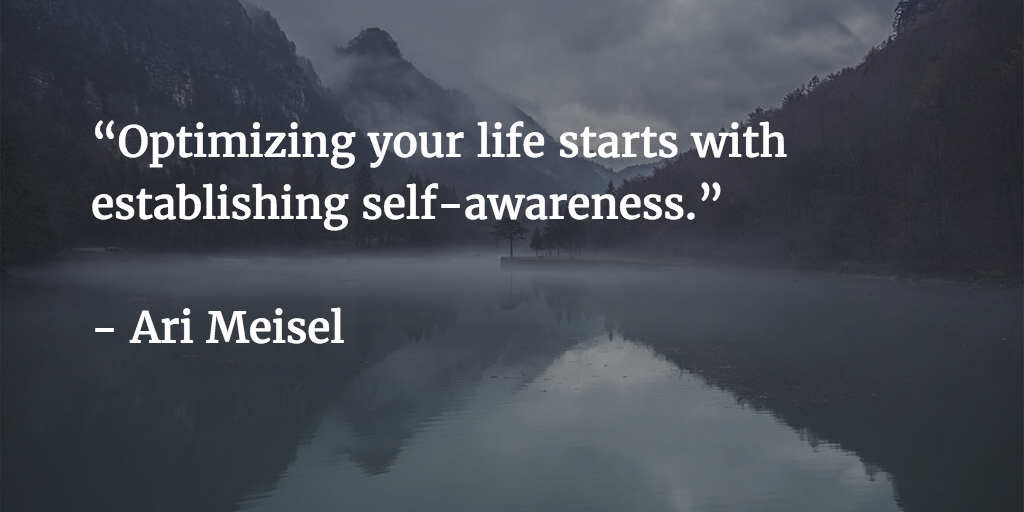1-Sentence-Summary: Less Doing More Living is based on the assumption that the less you have to do, the more life you have to live, and helps you implement this philosophy into your life by giving you real-world tools to boost efficiency in every aspect of your life.
Read in: 4 minutes
Favorite quote from the author:

Audio Summary
Listen to the audio of this summary with a free reading.fm account*:
Ari Meisel has done it all. Biohacking, real estate, building websites, productivity coaching, running triathlons. When he was forced to face Crohn’s disease at a very young age, he felt hopeless at first, but eventually developed an unbreakable spirit.
He not only overcame the disease but is now sharing his combination of techniques and story all over the world as a speaker, author and coach.
Less Doing More Living is the 2014 bestseller that contains most of his wisdom on productivity and taking back the time in your life to do what really matters to you.
Here are the 3 lessons that stood out to me:
- You can use an external brain to free space in your own.
- Customize your life to save time and even make money.
- Use upper and lower limits to trade quantity for quality.
Want to do less and live more? Here we go!
Lesson 1: Create an external brain to save space in your own.
Think you can remember everything and juggle multiple things at a time?
Not really, do you?
But we still try, every day.
Instead, let digital technology help you out here! By creating an external brain, for example.
You can use a tool like Evernote to literally store every information you potentially come across.
To-do lists, groceries, decoration ideas, articles, notes, it’s a one stop shop for everything. Texts, pictures, and even hand-drawn notes go in there, and it’s searchable, meaning you can find everything again easily.
There’s no storage limit, and the algorithm organizes things in a way which is similar to how your brain saves information.
It links similar posts together in bigger networks and therefore the search results are very accurate.
Note: I’ve been using Evernote for 3 years now and it’s a lifesaver indeed!
Stop trying to remember everything, it’s just not necessary any more.
As my grandma used to say: Knowing means knowing where to find it!
Lesson 2: Customize your life to save time and even make money.
Do you know how sometimes architects shape rooms in a really weird way?
There’s often that one little space in the corner where your desk is, that’s not really accessible, because nothing fits there. 10 years ago, if you wanted a custom shelf to exactly fit into that corner, the only way was building it yourself.
Today, you can have the same thing done and shipped to you within a matter of days, thanks to 3D printing.
Ari, for example, used Shapeways to build a custom wall mount for his computer. All he had to do was sketch a design on paper (yes, bad drawings are okay) and have someone on Fiverr turn it into a 3D model.
The model was then uploaded to Shapeways and a week later, his own custom wall mount was in the mailbox.
And if you thought that’s brilliant, consider this: He then used Shapeways’s website to sell 6 more of these wall mounts to others, who had the same computer as him, and made $400 off of it.
Customizing your tools and adapting them to your own needs can not only make your life easier, but also help others who have the same problem – compare that to “being difficult” by wanting something custom in a restaurant.
An entirely new perspective, right?
Lesson 3: Use upper and lower limits to trade quantity for quality.
Deliberately limiting yourself is one of the most freeing things you can do.
Ari suggests doing it with upper and lower limits.
An upper limit is a maximum you can’t exceed, for example the number of pieces of clothing in your wardrobe, the amount of time you can spend on Facebook each week, or the number of burgers you get to eat in a month.
A lower limit, then, is a minimum you can’t fall below. These are helpful for the things you always want to do, but keep putting off, like exercising, spending time with family, or traveling.
Ari has an upper limit for the number of electronic devices he can have, and a lower limit for doing at least 1 trip per month, for example.
Both of these help you trade quantity for quality in your life and not let work or possessions take up the time you actually want to spend on what’s truly important.
Less Doing More Living Review
Great collection of tools and resources. I liked how each blink on Blinkist mentioned several of them, to make Ari’s lessons actionable. He’s built a great system to remain both effective and efficient, and some of the lessons are very counter-intuitive.
Less Doing More Living combines the new technologies we can use to implement a lot of older productivity advice in a better way with classic, minimalistic, tips on letting go what’s non-essential.
The summary felt like a fusion of The Pomodoro Technique and Essentialism, while reminding me slightly of Leo Babauta’s The Power of Less.
Tip: Read the summary on Blinkist to get a feel for how the book meshes technology and sound productivity strategies and then get the full resource treasure chest in form of the book.
Who would I recommend the Less Doing More Living summary to?
The 21 year old, who always forgets one thing on her shopping list, the 31 year old, who feels like he has two left hands and can’t build anything custom for himself, and anyone who feels like they have too much stuff.
Last Updated on February 13, 2024